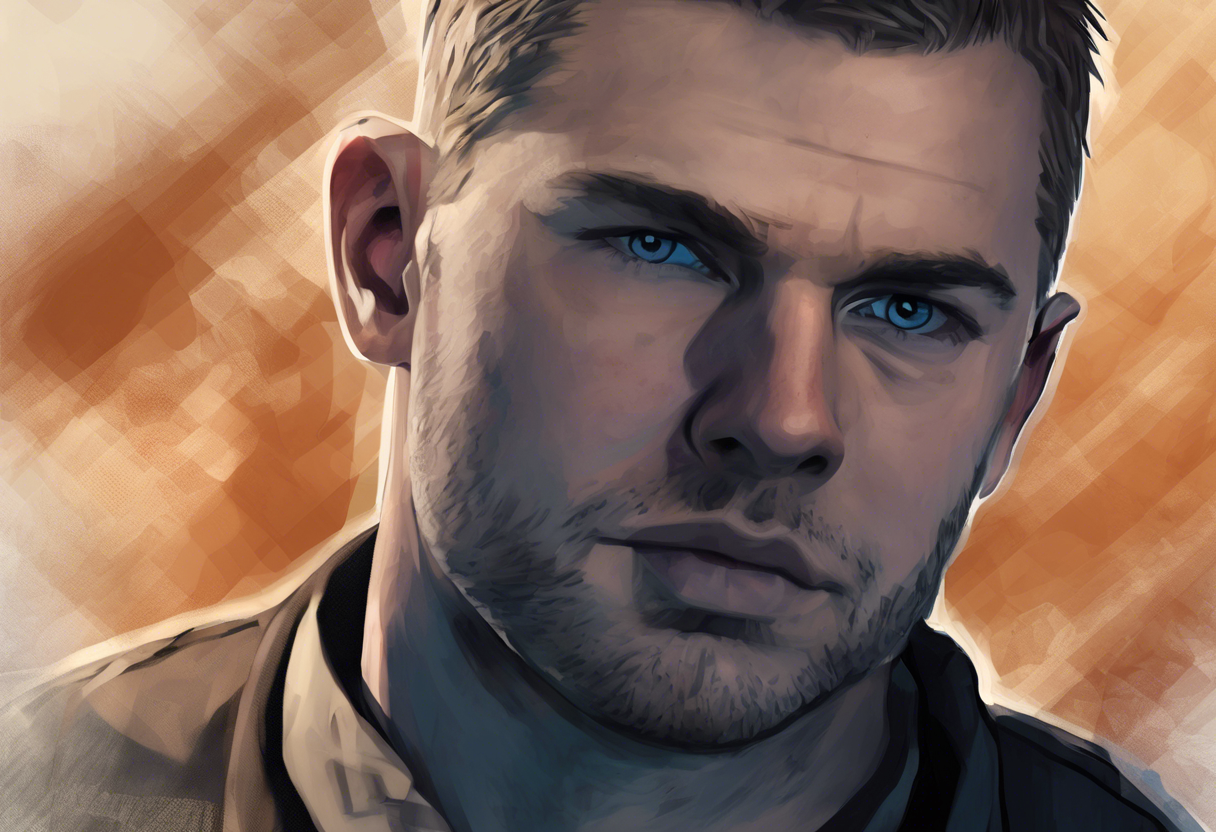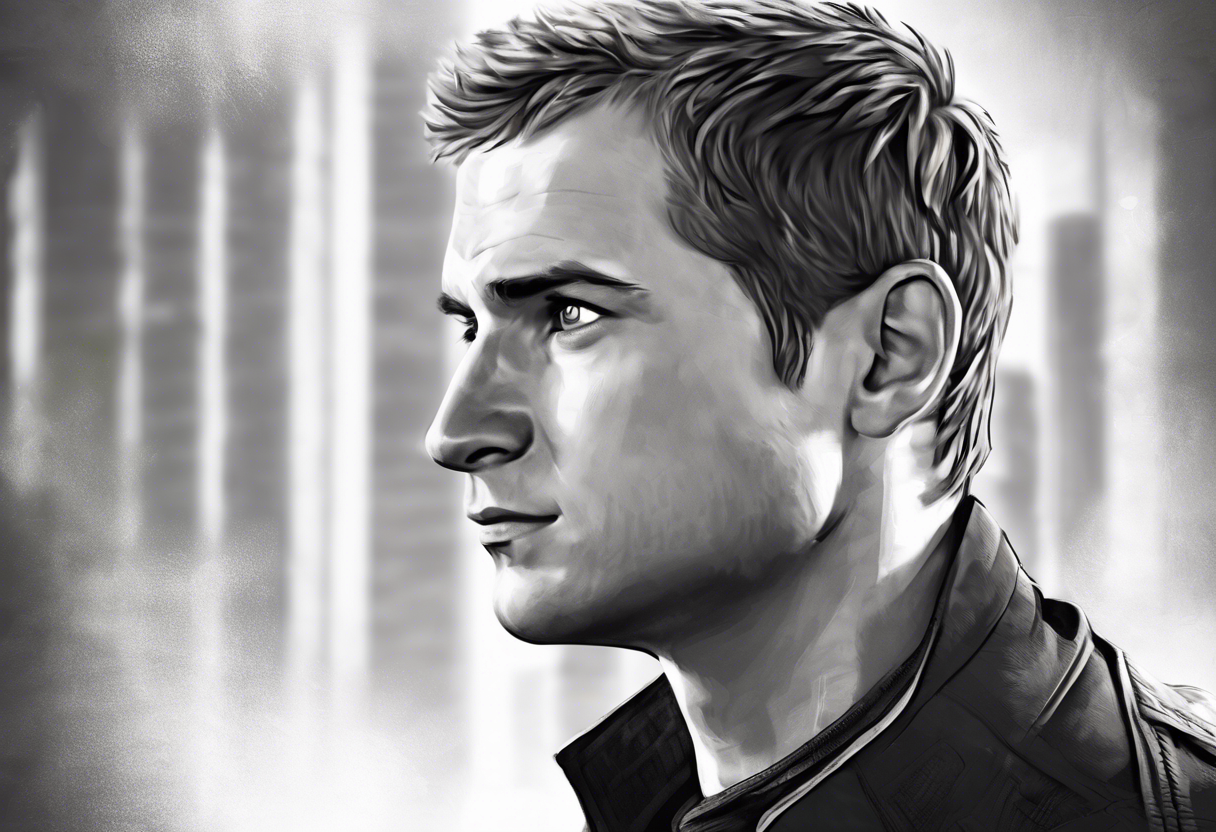Contents
Andrew Prior: A Comprehensive Analysis of the Divergent Character
Introduction
Andrew Prior is a pivotal character in Veronica Roth’s dystopian novel, Divergent, and the subsequent books in the trilogy. He is the father of the protagonist, Beatrice "Tris" Prior, and her brother Caleb, as well as the husband of Natalie Prior. Andrew’s character is deeply rooted in the societal structure of the novel, where Chicago is divided into five factions, each representing a different virtue: Abnegation, Amity, Candor, Erudite, and Dauntless.
Andrew’s origins are tied to the Abnegation faction, where he serves as a council member alongside Marcus Eaton. His family’s history is complex, with his ancestors originally being part of Abnegation but later switching to Erudite through generations. However, Andrew chose to return to Abnegation, reflecting his strong commitment to the faction’s values of selflessness and altruism [1][5].
Andrew’s significance in the narrative extends beyond his familial role; he embodies the ideals of Abnegation and plays a crucial part in the political and social conflicts that drive the plot. His character also connects to broader literary traditions of paternal figures who struggle with the choices of their children, a theme common in coming-of-age stories.
Role in the Story
Andrew Prior’s storyline is intricately woven into the fabric of the novel. As a member of the Abnegation council, he is deeply involved in the faction’s governance and is known for his affectionate and caring nature. However, his relationship with his children becomes strained when both Tris and Caleb choose to leave Abnegation for other factions. This decision is particularly painful for Andrew, who feels betrayed by their choices and does not visit Tris on Visiting Day as a result [1][5].
During the attack on Abnegation by Dauntless members under Erudite’s control, Andrew’s role becomes critical. He reunites with Tris and Caleb and accompanies them to the Dauntless headquarters. Here, he faces his own fears and struggles with the moral implications of the conflict. His death, resulting from a gunshot wound inflicted by a Dauntless guard under simulation control, is a pivotal moment in the story, highlighting the brutality and consequences of the factional conflict [1][5].
Andrew’s relationships with other characters are also noteworthy. His bond with Tris is particularly significant, as he appears in her fear landscape, reflecting her deep-seated fears and anxieties about her family and her choices. His interactions with Caleb are less explored but equally important, as both sons grapple with their own identities and loyalties to their family and factions [1][4].
Character Analysis
Andrew Prior’s personality is defined by his unwavering commitment to the principles of Abnegation. He is depicted as an affectionate and caring man, deeply devoted to his family and his faction. However, this devotion also leads to his greatest flaws: his inability to accept his children’s decisions and his rigid adherence to Abnegation’s values.
Andrew’s motivations are rooted in his desire to protect and serve his community. He is a leader who believes in the importance of selflessness and is willing to make difficult decisions to uphold these values. This is evident in his role as a council member and his involvement in the political machinations of the faction system.
Despite his flaws, Andrew remains a compelling and relatable character. His struggles with his children’s choices resonate with readers who have experienced similar conflicts within their own families. His ultimate sacrifice underscores the depth of his commitment to his beliefs and his family, making him a memorable and impactful character in the narrative.
Themes and Symbolism
Andrew Prior embodies several key themes in Divergent. He represents the ideal of selflessness and the importance of community, which are central to the Abnegation faction. His character also highlights the theme of sacrifice, as he gives his life in the service of his faction and his family.
Symbolically, Andrew’s death serves as a catalyst for Tris’s journey. It underscores the stakes of the conflict and the personal costs that characters must pay in their fight against the oppressive regime. His legacy continues to influence Tris’s actions throughout the series, reminding her of the importance of family, loyalty, and selflessness.
Cultural Impact
Andrew Prior’s cultural impact is significant, particularly within the context of young adult dystopian literature. His portrayal in the book and the film adaptations has resonated with audiences, who see in him a figure of authority and compassion. Tony Goldwyn’s portrayal of Andrew in the 2014 film Divergent and the 2015 film The Divergent Series: Insurgent brought the character to life, making him more relatable and accessible to a broader audience [1].
The character’s influence extends beyond the Divergent series itself. He represents a archetype of the caring yet flawed paternal figure, a character type that is common in literature and media. This archetype continues to inspire other works, particularly in the young adult genre where family dynamics and coming-of-age themes are prevalent.
Critical Reception
Andrew Prior has received positive critical reception for his nuanced portrayal in the novel. Critics have praised his complexity, noting that he is more than just a one-dimensional character. His flaws and strengths make him relatable and human, adding depth to the narrative.
Audiences have also responded well to Andrew’s character, appreciating the emotional resonance of his relationship with Tris and the impact of his death on the story. However, some critics have noted that his character could have been further developed, particularly in terms of his backstory and his relationships outside of the immediate family.
Legacy
Andrew Prior’s legacy in the Divergent series is enduring. He remains a significant figure in Tris’s journey, symbolizing the values of Abnegation and the personal sacrifices that come with standing up against oppression. His character continues to inspire discussions about family, loyalty, and the importance of community.
In contemporary discussions, Andrew Prior’s character serves as a reminder of the complexities of family relationships and the challenges of adhering to one’s beliefs in the face of adversity. His influence can be seen in other works of young adult literature, where characters grapple with similar themes of identity, loyalty, and sacrifice.







